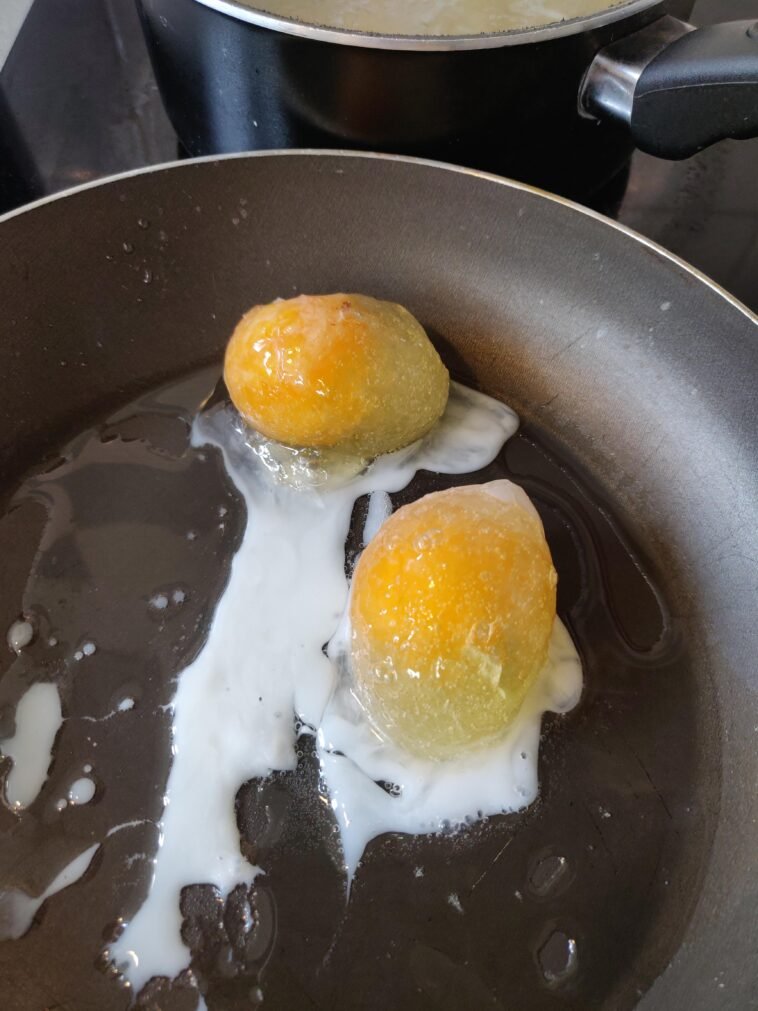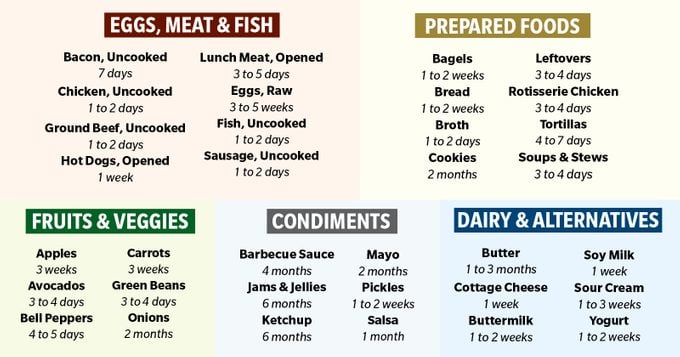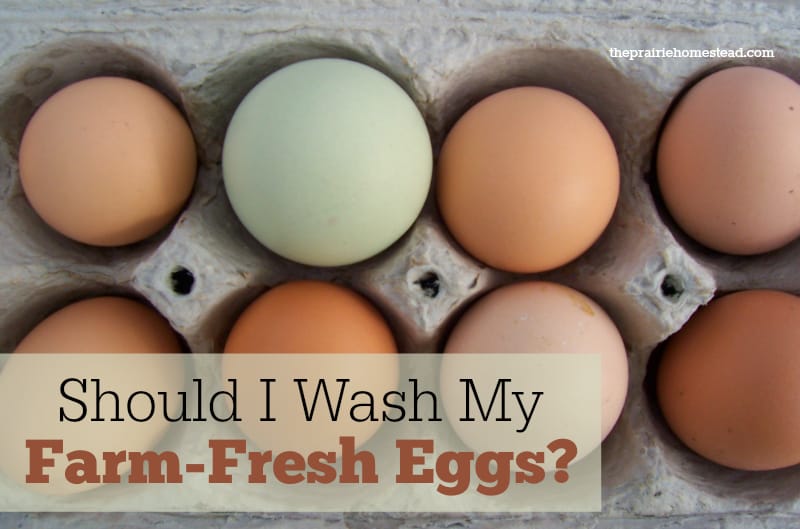Chicken eggs should be stored in the fridge to stay fresh. They last up to three to five weeks when refrigerated.

Proper storage of chicken eggs ensures their freshness and safety for consumption. Refrigeration slows down the growth of bacteria, extending the shelf life of eggs. Keeping eggs in their original carton helps prevent moisture loss and odor absorption. Most eggs remain fresh for three to five weeks when stored in the fridge.
This practice not only preserves their quality but also maintains their nutritional value. Remember to check the expiration date and perform a freshness test if unsure. Fresh, well-stored eggs provide a reliable source of protein and other essential nutrients.
Egg Storage Basics
Knowing how to store chicken eggs is crucial. Proper storage ensures they stay fresh and safe to eat. This section explores the basics of egg storage.
Room Temperature Vs. Refrigeration
Should you store eggs at room temperature or in the fridge? Let’s explore both methods:
- Room Temperature: Fresh, unwashed eggs can stay at room temperature for up to two weeks. This method is common in many countries.
- Refrigeration: In the fridge, eggs can last up to five weeks. This method is preferred in the United States.
Here’s a quick comparison:
| Storage Method | Freshness Duration |
|---|---|
| Room Temperature | Up to 2 weeks |
| Refrigeration | Up to 5 weeks |
Egg Types And Storage
Different types of eggs may require different storage methods. Let’s look at some common types:
- Farm-fresh Eggs: These are often unwashed and can be stored at room temperature.
- Store-bought Eggs: These are usually washed and should be refrigerated.
- Organic Eggs: Treat these like store-bought eggs; keep them in the fridge.
- Pasteurized Eggs: Always refrigerate these eggs to maintain their safety and quality.
Knowing the egg type helps you choose the right storage method. Proper storage keeps eggs fresh and safe for consumption.

Credit: www.tasteofhome.com
Optimal Refrigeration
Ensuring your chicken eggs stay fresh involves understanding optimal refrigeration. Proper storage can extend their shelf life, maintaining their quality and safety.
Ideal Temperature
The ideal temperature for storing chicken eggs is between 33°F and 40°F (0.5°C to 4°C). Keeping eggs cool slows bacterial growth, preserving their freshness.
Refrigerators should stay within this range. Invest in a fridge thermometer to monitor the temperature accurately.
Best Practices
Follow these best practices to keep your eggs fresh:
- Store eggs in their original carton. This protects them and reduces moisture loss.
- Place the carton in the coldest part of the fridge, not the door. The door experiences temperature fluctuations.
- Keep eggs away from strong-smelling foods. The shells are porous and can absorb odors.
Check the expiration date on the carton. Most eggs remain fresh for about 3-5 weeks after the packing date.
Here is a table summarizing the key points:
| Item | Detail |
|---|---|
| Ideal Temperature | 33°F – 40°F (0.5°C – 4°C) |
| Storage Location | Coldest part of the fridge, not the door |
| Storage Method | In original carton |
| Smell Protection | Away from strong-smelling foods |
| Freshness Duration | 3-5 weeks |
Shelf Life Of Eggs
Eggs are a staple in many households. Knowing how long they last is important. This guide will help you understand the shelf life of eggs.
Fresh Eggs
Fresh eggs from your backyard or local farm can last a long time. If stored properly, they stay fresh for up to 3 weeks.
Here are some tips:
- Store them in the fridge.
- Keep them in the original carton.
- Place them on a middle or lower shelf.
To check if an egg is still fresh, perform a water test. Place the egg in a bowl of water. If it sinks, it’s fresh. If it floats, it’s time to throw it away.
Store-bought Eggs
Store-bought eggs have a sell-by date. They are usually good for 3-5 weeks after this date if kept in the fridge.
Follow these storage tips:
- Keep them in the original carton.
- Store them on a middle or lower shelf in the fridge.
Never store eggs in the fridge door. The temperature fluctuates too much.
Egg Shelf Life Comparison Table
| Type of Eggs | Stored in Fridge |
|---|---|
| Fresh Eggs | Up to 3 weeks |
| Store-Bought Eggs | 3-5 weeks after sell-by date |
Knowing how long eggs last helps reduce waste. Follow these tips to keep your eggs fresh and safe to eat.
:max_bytes(150000):strip_icc()/how-long-can-raw-chicken-stay-in-the-fridge-9732983f35f747539b54c3762d6058b5.jpg)
Credit: www.eatingwell.com
Signs Of Freshness
Fresh eggs are a delight to cook with. Knowing how to check for freshness can save you from any kitchen disasters. There are simple ways to check if your eggs are still good.
Visual Inspection
A quick visual inspection can tell you a lot. Start by looking at the shell. Fresh eggs have a clean and smooth shell. Cracks or slimy spots are a bad sign.
- Check for any discoloration.
- Look for dirt or debris.
- Avoid eggs with a chalky shell.
Next, crack the egg into a bowl. Fresh eggs have a firm yolk and thick whites. Older eggs will spread out more and look watery.
Float Test
The float test is a quick and easy method. Fill a bowl with water. Place the egg in the water.
- If it sinks and lays flat, it is fresh.
- If it stands upright or floats, it is old.
This test works because the air cell inside the egg increases over time. More air means the egg will float. Remember, a floating egg should not be eaten.
Common Egg Myths
Many myths surround the storage and freshness of chicken eggs. Some people believe eggs must continually be refrigerated. Others think expiration dates are strict rules. Let’s debunk these common egg myths.
Refrigeration Myths
Some believe eggs must be refrigerated. This isn’t always true. In many countries, eggs stay fresh without refrigeration. It depends on how the eggs are processed.
- Washed eggs: In the U.S., eggs are washed, removing the protective layer. These eggs need refrigeration.
- Unwashed eggs: In Europe, eggs aren’t washed. They can stay at room temperature safely.
Refrigeration can prolong the freshness of eggs. Cold temperatures slow down bacterial growth. If in doubt, keep your eggs in the fridge.
Expiration Dates
People often worry about expiration dates. These dates are guidelines, not strict rules. Eggs can stay fresh beyond their expiration date.
- Freshness test: Place the egg in water. If it sinks, it’s fresh. If it floats, it’s old.
- Smell test: Crack the egg open. Fresh eggs have no strong odor. Bad eggs smell sulfurous.
Use these tests to check egg freshness. Don’t rely solely on expiration dates. Your eggs might last longer than you think.
Extending Egg Freshness
Are you wondering how to keep your chicken eggs fresh for longer? Proper storage and handling can make a big difference. This section explains how to extend the freshness of your eggs. Follow these simple tips to enjoy fresh eggs for weeks.
Proper Handling
Handle eggs with clean hands. Always wash your hands before touching eggs. Clean hands prevent the spread of bacteria.
Inspect eggs for cracks. Cracked eggs spoil faster. Discard any cracked eggs to avoid contamination.
Wash eggs only before use. Washing removes the protective coating. Unwashed eggs last longer.
Storage Tips
Keep eggs in their original carton. The carton protects eggs from odors and damage.
Store eggs in the fridge. The fridge keeps eggs at a steady, cool temperature.
Place eggs on a middle shelf. The middle shelf has a consistent temperature. Avoid the fridge door, where temperatures fluctuate.
Keep eggs pointed end down. This keeps the yolk centered and fresh.
How Long Do Eggs Last?
| Storage Method | Duration |
|---|---|
| Refrigerated, in carton | 3-5 weeks |
| Refrigerated, out of carton | 2-3 weeks |
| Room temperature | 1-2 weeks |
Check the expiration date on the carton. Always use eggs before the expiration date.
Health And Safety
Understanding the health and safety aspects of storing chicken eggs is important. Proper storage can prevent health risks and ensure eggs stay fresh.
Bacterial Risks
Chicken eggs can carry bacteria like Salmonella. This bacteria can cause serious illness. Keeping eggs in the fridge reduces bacterial growth. Bacteria thrive in warm conditions. Refrigeration slows their spread.
Always check eggs for cracks. Cracked eggs have a higher risk of contamination. Discard any eggs with cracks to stay safe. Clean eggs before storage. Dirt and feces can carry bacteria.
Store eggs in their original carton. The carton protects eggs from absorbing odors. It also helps to keep the eggs safe from damage. Label the carton with the date of purchase. This helps you track freshness.
Safe Consumption
Refrigerated eggs can last up to three weeks. Always check the expiration date. Freshness is key for safe consumption. To test an egg’s freshness, perform a water test. Place the egg in a bowl of water.
- If it sinks and lays flat, it’s fresh.
- If it stands upright, it’s still safe but not as fresh.
- If it floats, it’s time to discard it.
Always cook eggs thoroughly. Cooking kills any bacteria present. Avoid raw or undercooked eggs. These can pose health risks, especially for children.
Use a food thermometer to check egg dishes. Ensure they reach an internal temperature of 160°F (71°C). This temperature kills harmful bacteria.
| Storage Method | Duration |
|---|---|
| Refrigerated (in carton) | Up to 3 weeks |
| Room temperature | 1 to 2 days |
Following these guidelines ensures eggs are safe to eat. Proper storage and handling are crucial for health and safety.
Alternative Storage Methods
Chicken eggs are perishable but can be stored in various ways. Refrigeration is common, but there are other methods. These methods can extend the shelf life of eggs, giving you more options.
Freezing Eggs
Freezing eggs is a great way to keep them fresh for longer.
Follow these simple steps to freeze your eggs:
- Crack the eggs into a bowl.
- Beat the eggs until the yolks and whites are combined.
- Pour the mixture into ice cube trays.
- Freeze until solid.
- Transfer the frozen cubes to a freezer bag.
Frozen eggs can last up to a year. Use them in recipes that require beaten eggs.
Pickling Eggs
Pickling eggs is another method to extend their shelf life. This gives them a unique flavor.
Here’s a simple recipe to pickle your eggs:
| Ingredients | Quantity |
|---|---|
| Hard-boiled eggs | 12 |
| White vinegar | 2 cups |
| Water | 1 cup |
| Sugar | 1 tablespoon |
| Salt | 2 teaspoons |
| Pickling spices | 1 tablespoon |
Steps to pickle eggs:
- Boil the eggs and peel them.
- Mix vinegar, water, sugar, salt, and spices in a saucepan.
- Bring the mixture to a boil, then let it cool.
- Place the peeled eggs in a jar.
- Pour the cooled vinegar mixture over the eggs.
- Seal the jar and refrigerate for at least a week.
Pickled eggs can last up to 3-4 months in the fridge.

Credit: www.theprairiehomestead.com
Frequently Asked Questions
Are Eggs Good After 3 Months in the Fridge?
Eggs typically stay fresh for 3-5 weeks in the fridge. After 3 months, they are likely bad. Check for spoilage signs.
How Long Do Unwashed Fresh Eggs Last?
Unwashed fresh eggs last about three weeks at room temperature. Store them in a cool, dry place.
How Long After a Chicken Lays an Egg is It Good?
Fresh eggs are good for 3-4 weeks when refrigerated. Store them in the fridge to maintain quality.
Should You Wash Farm Fresh Eggs Before Refrigerating?
Do not wash farm-fresh eggs before refrigerating them. Washing removes the protective bloom, increasing the risk of contamination. Store unwashed eggs in the fridge.
Conclusion
Storing chicken eggs in the fridge can extend their freshness and shelf life. Keep them in their original carton. They can last up to three to five weeks when refrigerated. Always check for signs of spoilage before use. Proper storage ensures you enjoy fresh eggs for longer.


GIPHY App Key not set. Please check settings